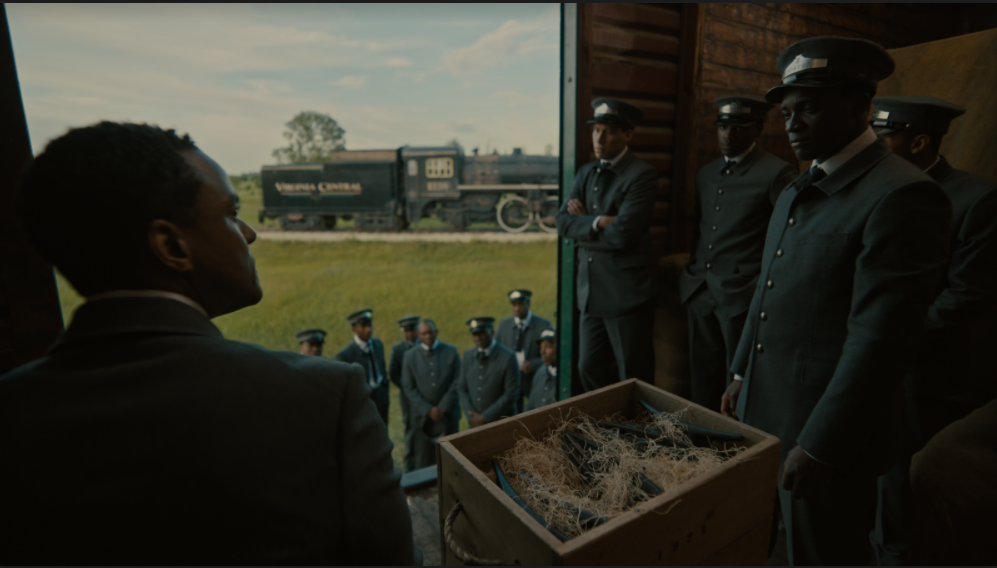Far from the rosy multicultural haven one may have been taught about in their high school history class, Canada has a sordid legacy of anti-Black racism and discrimination. CBC’s new show, The Porter, released on Feb. 21, explores the little-known history of Black Canadians in Montreal through the lens of Black railway workers in the early 1920s.
An eight-episode series, The Porter follows the lives of train porters Junior (Aml Ameen) and Zeke Garrett (Ronnie Rowe), as well as Marlene Massey (Mouna Traoré), a Black Cross nurse, and Lucy Conrad (Loren Lott), a jazz club performer. Though characters face systemic problems in their professions—including dangerous working conditions and racist and sexist higher-ups—their stories are imbued with strength and resilience, with a major plot point of the show centering on Zeke’s efforts to establish the first Black labour union.
Though it tells a fictional story, The Porter incorporates real historical events into its plotlines. Zeke’s efforts to unionize Black porters, Junior’s bootlegging operations, Marlene’s involvement with the Universal Negro Improvement Association (UNIA), and Lucy’s work in the entertainment industry encompass a range of true stories, albeit consolidated and rearranged for engaging television. A crucial element of the show is its location in Montreal’s own St. Antoine neighbourhood—also known as Little Burgundy. As both a railway hub and the home of Canadian jazz, St. Antoine attracted a diverse and growing Black community from the Maritimes, the Caribbean, and the United States in the early 20th century. Several dance numbers in the Stardust Club pay homage to St. Antoine’s African and Caribbean heritage and give credence to Montreal’s 20th-century status as the “Harlem of the North.” Though the show was shot in Winnipeg, the production recreated life in Montreal in the 1920s, drawing upon archival photographs and consultations with historians.
Aside from its captivating historical perspectives, The Porter’s strength lies in its diverse array of nuanced characters and situations. Tragedy strikes when Henry, a fellow porter, dies after falling off a railway car due to a lack of safety precautions. While Zeke attempts to reason with the Cross-Continental Railway higher-ups and rallies to unionize his fellow porters, Junior enters the bootlegging industry in Prohibition-era Chicago. Junior sees Henry’s death as proof that work as a porter is fundamentally inhumane, so he quits as an act of self-preservation, while Zeke tries to change the nature of the job to help his community. Though the two bonded as soldiers in WWI, their differing reactions are understandable—they reveal the complexities of coping with the racist society surrounding them. Marlene’s internal conflict in wanting to help those struggling in her community but questioning whether her work as a Black Cross nurse is ultimately useful enough to them, presents a similar struggle.
With a healthy dose of human drama, The Porter presents an engaging and thought-provoking look into a chapter of Montreal’s history, striking a satisfying balance between soap opera and historical drama. It entertains viewers while simultaneously encouraging them to look further into the stories of Black Canadians and Montrealers. With a talented cast of characters with diverse backstories and perspectives, The Porter brings to life some of the many stories that made Canada into the country it is today.
The Porter is available on CBC and BET+.








